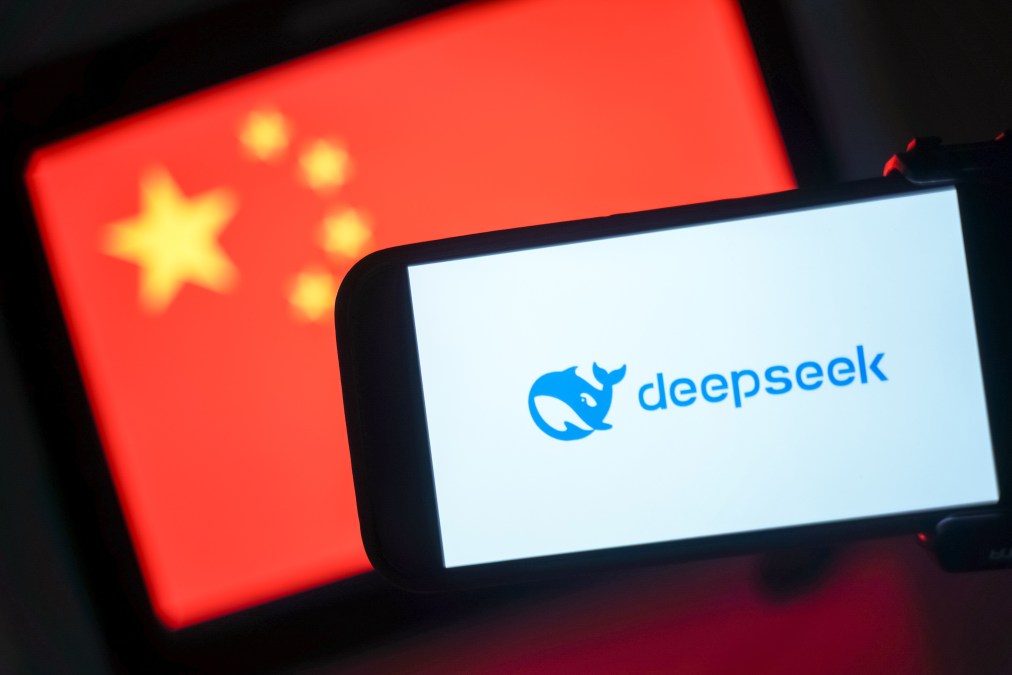Senators move to quash the use of Chinese AI system by federal contractors

A bipartisan Senate bill would formally ban the use of DeepSeek by federal contractors, part of a larger effort to keep the Chinese-made large language model out of government systems and networks, where lawmakers fear it could pose cybersecurity and national security concerns.
The bill, introduced by Sens. Bill Cassidy, R-La., and Jacky Rosen, D-Nev., would bar federal contractors from using the model to carry out any activity related to a federal contract. It also blocks contractors from using any successor model developed by High Flyer, the Chinese quantitative firm that made DeepSeek.
Cassidy and Rosen cited the potential that the use of DeepSeek — which acknowledges that it sends user data back to China — to carry out contract work may put sensitive federal data in the hands of the Chinese government.
“AI is a powerful tool which can be used to enhance things like medicine and education,” Cassidy said in a statement. “But in the wrong hands, it can be weaponized. By feeding sensitive data into systems like DeepSeek, we give China another weapon.”
The bill gives the Commerce secretary the power to issue waivers on a case-by-case basis if they determine it is “required for the completion of a national security-related objective of a certain contract or for research purposes.” That could potentially ensure that federal agencies like the Cybersecurity and Infrastructure Security Agency, the FBI and the intelligence community are still able to legally test and evaluate models like DeepSeek for cybersecurity flaws and other vulnerabilities.
But DeepSeek is just one of a handful of powerful new AI models coming from Chinese companies, all of which pose the same potential risks of sending federal data back to Beijing if used in contracts.
So the legislation would also direct the Commerce secretary to develop a report for Congress on the threats to national security posed by artificial intelligence platforms based in or affiliated with countries of concern, including China, Russia, North Korea and Iran.
The report would include an analysis of how these states wield censorship authorities using AI amongst their own populations, their capability for extracting intelligence from models that store their customer data inside their borders, and the potential national security threat of Americans feeding their sensitive data into AI systems.
The bill from Cassidy and Rosen is the latest response by U.S. federal and state lawmakers to limit or bar the use of DeepSeek on government devices, reflecting both the uncertainty that blackbox AI models can pose to the digital security of data or systems they interact with and echoing previous concerns Washington national security officials have voiced about products from Chinese companies Huawei, ZTE and Tik Tok, as well as the Russian company Kaspersky.
For years, U.S. officials have pointed to domestic laws in those countries that can compel companies to turn their data over to law enforcement or intelligence services in national security investigations, saying anyone who relies on Chinese-made technologies are putting their data in the hands of foreign adversaries. OpenAI has accused High Flyer of using its model and data to train DeepSeek. (OpenAI, meanwhile, is facing lawsuits from numerous American companies that allege the company did the same thing while training ChatGPT).
Rosen is co-sponsor of another bill, the No DeepSeek on Government Devices Act, that would ban the AI tool on government devices and has a companion bill in the House. Rep. Mark Green, R-Tenn., introduced his own legislation that would tighten up export controls to further reduce the flow of computer chips and other components to China that are needed to power and train DeepSeek and other Chinese AI models.
The Trump administration’s National Security Council is conducting a review of national security threats related to the model, while the House has moved to bar congressional offices from installing or downloading DeepSeek on work devices. The Defense Information Systems Agency and Navy issued similar memos to their own personnel.
Texas, New York and Virginia have all passed legislation that would impose similar restrictions for state government employees and contractors, with other states expected to follow suit.






